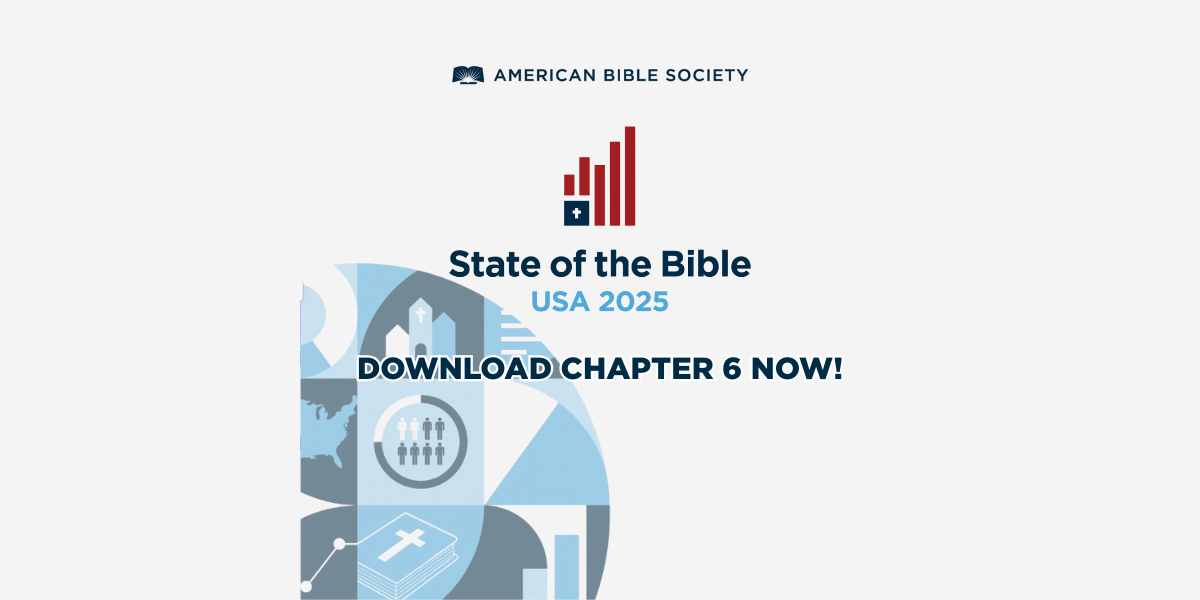American Bible Society today released the sixth chapter of their 15th annual State of the Bible report, which features data regarding identity—including self-image, beliefs, and priorities—with insights showcasing data distribution between generations and gender. The sixth chapter of State of the Bible: USA 2025 is available now for download at StateoftheBible.org.
“Identity levels are strong among people who practice religion—and not just Christianity,” says John Farquhar Plake, Chief Innovation Officer at American Bible Society and editor-in-chief of the State of the Bible series. “Something about core beliefs, shared worship, and common culture gives people a better sense of who they are. But we find an even greater effect with Scripture engagement. When people not only read the Bible but build their lives on it, they’re far more likely to have a strong sense of identity.”
In measuring this month’s data, State of the Bible asked a triad of questions to establish the strength of respondents’ senses of identity: “I know who I am,” “I always have a good sense about what is important to me,” and “I know what I believe or value.”
State of the Bible findings come from a nationally representative survey performed for American Bible Society by NORC at the University of Chicago, using their AmeriSpeak panel. The data came from 2,656 online interviews with American adults in all 50 states and the District of Columbia. Data were collected from January 2–21, 2025.
Key findings analyzed in Chapter 6: Identity
- Gen Z men are facing the greatest “identity crisis” among those represented in the survey, with only 30% reporting a strong sense of identity (page 112). On the contrary, Gen Z females show a much stronger sense of identity, coming in at 41%, 11 percentage points higher.
- More than half of both men and women in the Boomer+ generation have a strong sense of identity.
- Whether they identify as Christian or not, those who practice a religion report a strong sense of identity (page 119).
- Two in five (40%) of respondents who follow non-Christian religions agree that “my religious faith is very important to me.” This group has a strong sense of identity, with 67% at the Strong Identity level. This suggests that it’s not simply identification with a religion that shapes a person’s identity, but how important that faith is to them (page 119).
- Nearly two-thirds (63%) of Scripture Engaged individuals are ranked at the highest level of Strong Identity, with less than a tenth (9%) at the weakest level (page 120).
- The Movable Middle has a slightly weaker sense of identity than those who are Bible Disengaged (page 121).
- Lower levels of loneliness correlate with a strong sense of identity, with 89% of Strong-Identity men and 81% of Strong-Identity women reporting low or moderate levels of loneliness (page 118).
- 91% of Practicing Christians agree that they exist to know, love, and serve God, while 19% of Nominal Christians disagree with this statement (page 128). This divide between practicing and non-practicing Christians raises an interesting question about how the Bible’s strong sense of purpose shapes not only our identities, but the way we live our lives.
Continuing monthly through December 2025, American Bible Society will release three additional chapters in the State of the Bible story. Upcoming findings include trust in institutions and people and behaviors toward friends and neighbors.
To download the sixth chapter of State of the Bible 2025, visit StateoftheBible.org.





